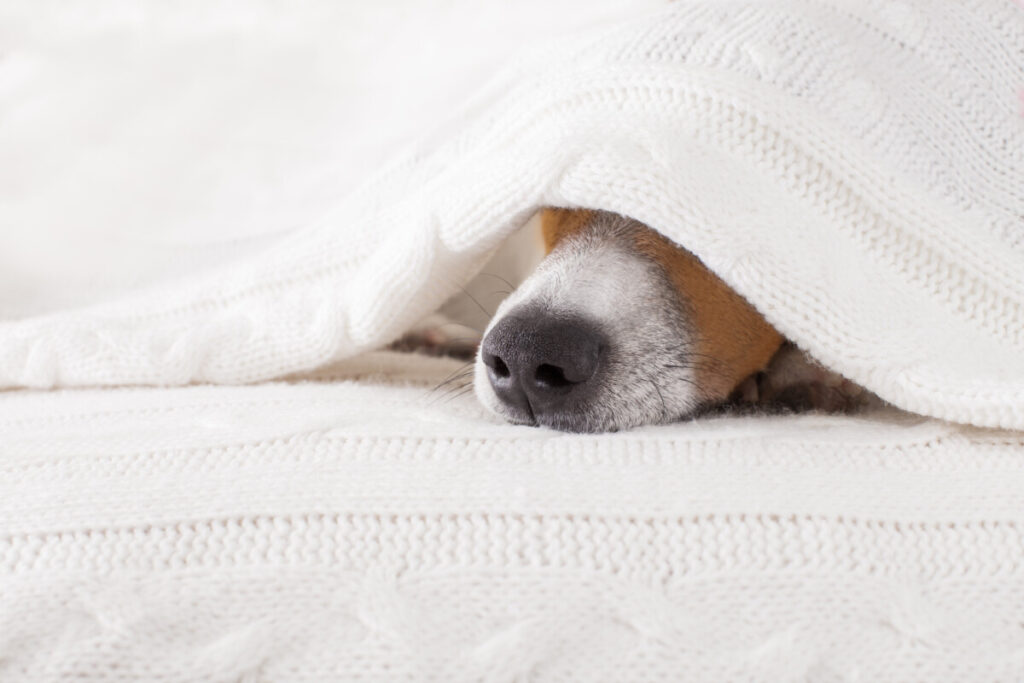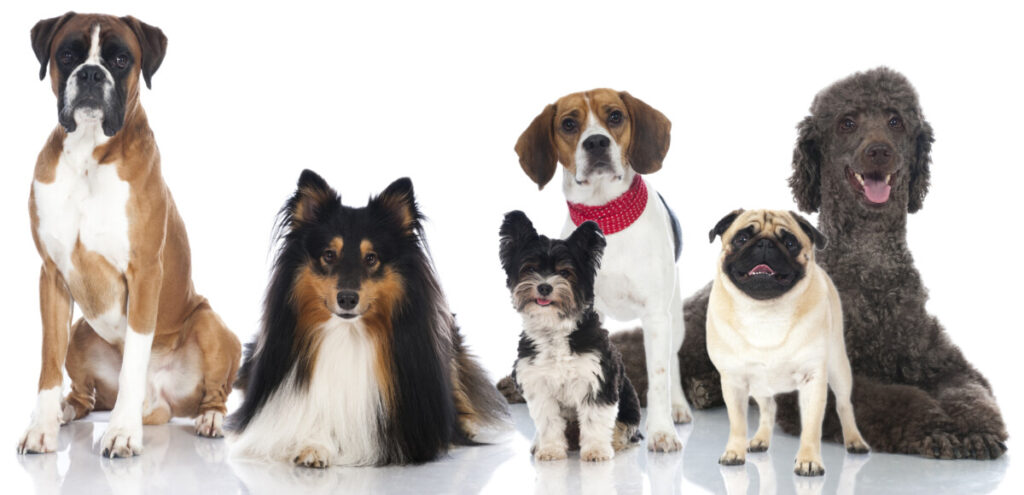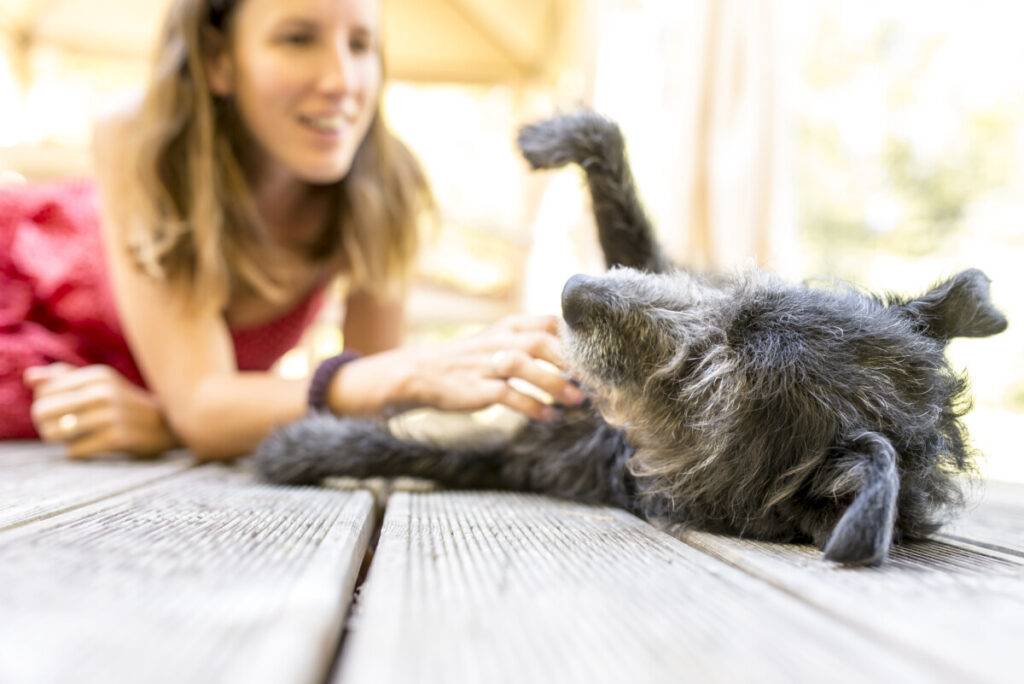Why Is My Goldendoodle Not Cuddly?
Goldendoodles can make such wonderful companions, friends, and service animals for so many different people. Some of the characteristics of dogs that make them so appealing are their friendliness, playful energy, and affectionate behavior. But it can feel very confusing when your Goldendoodle doesn’t display those particular traits with its owners. If a dog isn’t affectionate, is it a result of something the owner is doing, or is the dog having some unknown issues?
All Goldendoodles have unique personalities, needs, wants, likes, and dislikes. Therefore, they will behave differently. If a dog is not affectionate, it is either because they were born that way, or because they are sick, were abused, might not enjoy one’s way of cuddling, or other reasons.
Most Goldendoodles and other dogs are known to be very happy, very energetic, and adore anyone who gives them physical attention and time together. However, all pet owners need to learn and understand their furry friend’s normal behavior. If their pet begins to act differently, they can take notice and find out why. It could be a sign that something just isn’t quite right.
They Could be Sick
The first possibility that needs consideration is the chance that they could be sick. It’s harder to tell when a pet or animal is sick or not feeling, especially since they don’t physically look different than when they’re healthy. Since our furry friends cannot verbally express how they feel, it is up to us to pay attention to changes in their behavior.
If they are acting differently, make sure to have them looked at by their veterinarian as soon as possible. They can help determine if your Goldendoodle is in pain or if it has a sickness. Then they can work towards getting them healthy again.
They May be Depressed

If your Goldendoodle is not sick, a veterinarian can also help determine if they are depressed or anxious. Pets can become depressed from abuse (both past and present), the loss of another furry friend or family member, a change in environment, a lack of time outdoors, a lack of exercise, etc.
Signs that your dog feels depressed may include a change in appetite, more accidents in the home, lack of interest in previously enjoyed activities, excessive sleeping, acting out in aggression, laying down more than usual, and simply looking sad or mopey.
If you notice any of these signs, please take the necessary steps to help them get better. They deserve to have good mental health and to be truly happy!
They May Have Suffered Abuse
Another possible and unfortunately common reason your Goldendoodle may not be cuddly or affectionate is they could have been abused, or are currently being abused.
Dogs are very sensitive to how they are treated, whether it be physically or verbally. It’s very normal for dogs who have been mistreated, neglected, or abused in the past (or present) to not enjoy being touched, petted, held, or cuddled.
Dogs in these sad situations are oftentimes too anxious or uncomfortable with physical touch, and may never want to be touched or cuddled ever again because of the trauma they have experienced. But please do not take this to mean they do not love you or enjoy your company.
If you are treating them with love and gentleness, they are more than likely to truly appreciate you and the kindness you are showing them. They may just have a lower comfort level with those around them and try to keep themselves safe.
They May Not be Like Most Dogs

The fact that Goldendoodles are not identical is a difficult concept for some owners to grasp. However, being open to this idea can help pets and their humans develop stronger and healthier relationships together. Every pet as an individual is going to have a personal preference for how they want to be treated.
For example, some people assume that cats are mean, rude, and don’t want to be touched at all. This may be the case for some cats, but not all. Most cats are independent, yes. But many cats truly enjoy and want to receive belly rubs, head scratches, petting, and cuddling.
Dogs are the same way. Just because most dogs prefer and almost beg for physical affection, this does not mean every Goldendoodle is like that. Some dogs prefer minimal physical contact, fewer head scratches, and might love just sitting in a room with their owners.
They Might Not Enjoy Your Way of Affection

Keeping the previous thought in mind, look at all the ways you interact with your dog daily, and pay attention to how your pet reacts to each thing. Do they roll over in front of you with their feet up to expose their belly? Do they stay there looking content when you rub them? If so, this is a good sign that they enjoy this particular action from you.
If they are sitting next to you on the couch and you start scratching and rubbing the top of their head, do they get up and walk away to sit somewhere else? If so, they might be a sign they don’t enjoy that form of affection.
Or do they approach you, ask for affection, look happy and accept it when you pet or touch them, but shy away when you approach them first? This could mean your Goldendoodles prefers to go to you when they want physical touch instead of just accepting whenever you want to touch them.
Pay attention and observe your pet’s reactions to the things you do to them or around them. You can even research your dog’s body language and what they mean. This is a process that could take a long time to become a master at, but it will be worth it, and your dog will be so much more happy and comfortable around you!
Respecting Your Dog
As you learn about your Goldendoodle and what they enjoy from you, always remember to respect their boundaries, meet their needs, and most of all, be patient with them! Never force them to cuddle, be affectionate, or show love in ways they don’t want to. The more effort you put into growing your relationship with your pets, the more they will truly enjoy their time with you, and the more they’ll want to be with you.